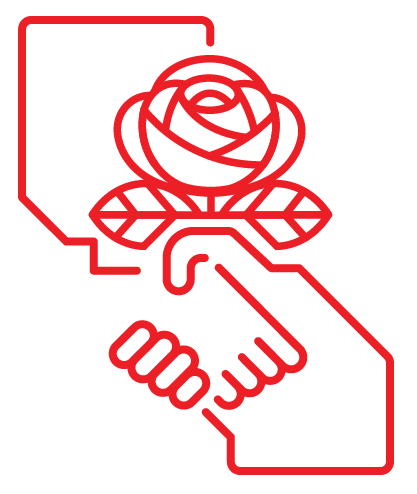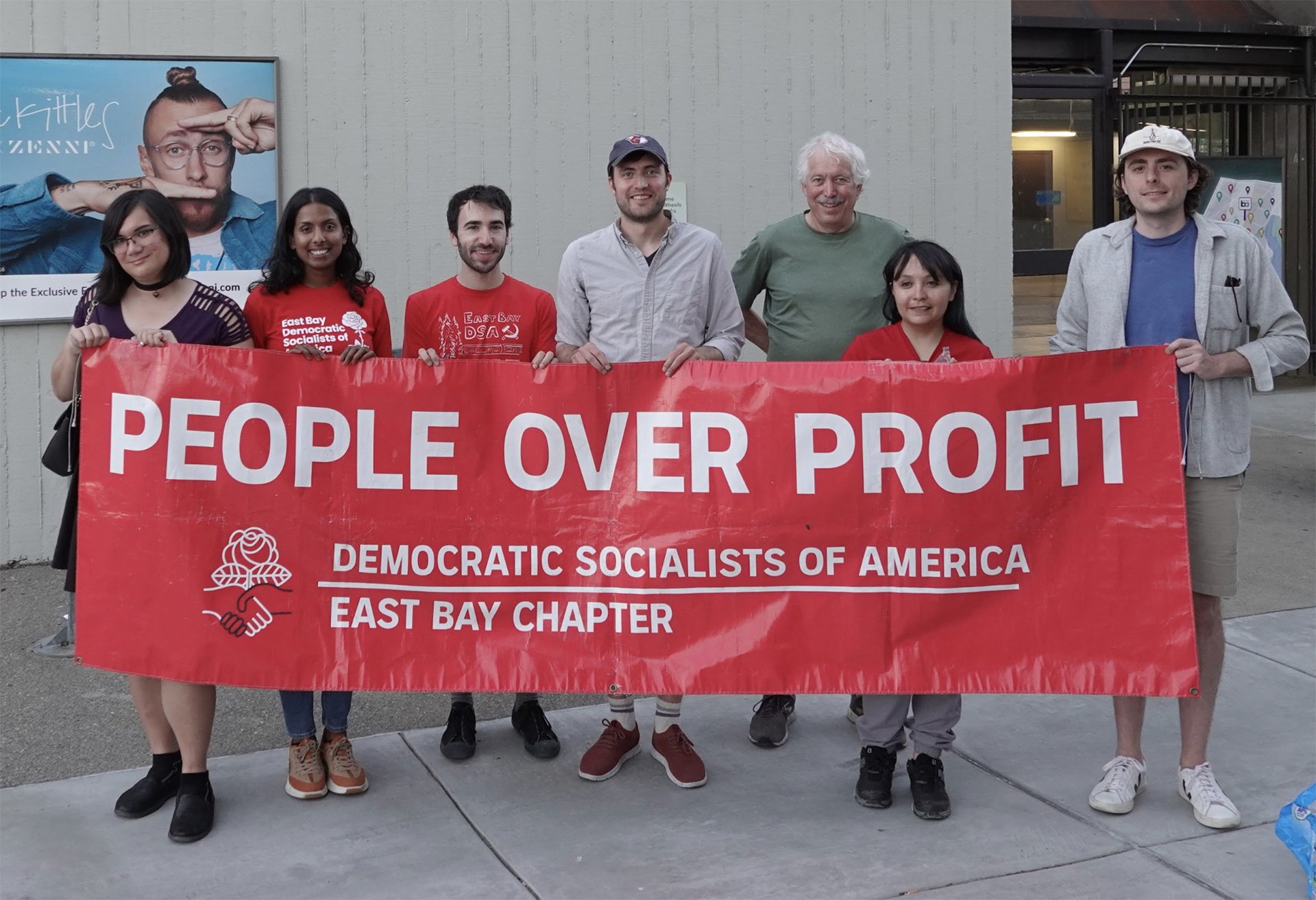Canvassing Contra Costa about local fossil fuel drilling
East Bay DSA members who canvassed Concord BART riders about fossil fuel drilling
On October 4th, from 4:30-6:30 PM, seven members of the Climate Action Committee of East Bay DSA canvassed at the Concord Bay Area Rapid Transit (BART) station, talking to people on their way back from work.
The primary aim of the canvass was to gather signatures for a petition to the Contra Costa County Board of Supervisors to ban new oil and gas infrastructure within the county and to phase out existing drilling.
To give some context for the petition and canvass, let’s look at the fossil-fuel geography of Contra Costa County. Contra Costa is chock full of refineries, which dot the coast of the county along its natural northern and western borders—a chain of waterways transitioning from the Sacramento River to the San Francisco Bay. Here we find a history of anti-fossil-fuel resistance, in the city of Richmond especially, where the Chevron refinery has poisoned residents for decades (e.g., Richmond has an asthma rate of 25%, compared to 13% in California).
Contra Costa also has an active oil well in unincorporated land outside the city of Antioch. This is on the eastern side of the imposing Mount Diablo, which splits the county.
We canvassed in Concord, which is the most populous city in Contra Costa (129,000), but fairly spread out with a land area larger than Manhattan. Concord is to the west of Mount Diablo.
Our experience canvassing
To assist the seven of us canvassing BART riders at the Concord station we had made flyers, which described our intent and some background on the current drilling.
Here’s what we found.
Many had no knowledge of drilling in Contra Costa County. One canvasser said only one person he spoke with knew about the drilling, and that person had been taught about it a few years ago as a high school student. This person was against the drilling, but felt hopeless about stopping it.
Only a small fraction of the BART riders stopped to chat, and even among those who seemed supportive, few were interested in having long conversations. As a result the vast majority of conversations were quite short.
Only a fairly small fraction of those who opposed the drilling did so due to the relationship between fossil fuel usage and climate change. Other reasons included: the negative health effects it could have on a beloved pet, and the perception that drilling could result in seismic activity.
Takeaways
A person will take an action to try to change the world when
that action fits into the existing pattern of their life-activity
they believe that that action has a good chance of changing the world to alleviate a felt pain.
Put another way, the strongest resistance begins in sites within people’s daily lives, in opposition to obvious wrongs, with actions that start off as small modifications of behaviors they’re already engaged in. This is why labor and tenant unions can be so powerful. They do not require their members to engage in purely “activist” activity outside the patterns of their daily behavior; rather they allow people to struggle within the life-patterns they are already following due to their position within the social structure.
Climate change is, unfortunately, a pretty abstract issue. The connection between its causes (fossil fuel usage demanded by the needs of capital accumulation) and its effects (heatwaves, fires, droughts, flooding, destruction of animal and plant life, mass migrations) is difficult to perceive directly because there is a large time-lag between the cause and the effects, and because the causality is mediated by completely invisible changes in the composition of the atmosphere.
Growing the committee’s skills
Even in this case of concrete fossil fuel infrastructure, the fact that the existing well is hidden away from most people makes the issue abstract in a way that lessens the felt pain. Moreover, the actions we were presenting people with—first stopping to talk about a yet unknown issue, and then subsequently signing a petition—required interrupting their normal commuting-rhythm and perhaps was not credible in terms of its potential to actually ban new fossil fuel infrastructure.
As a result, I think our effectiveness was limited in terms of getting signatures and having deep conversations. On the positive side, I think the canvass was valuable in terms of exercising our skills as a committee: our logistical capacity of getting canvassing materials to the site, our mobilizing capacity to turn out members, our design and communication capacities in the design and production of a flyer, and our skills in talking to strangers about politics. Moreover, I think we learned something about how a local segment of the working class is currently thinking about the climate crisis, the relation of that crisis to fossil fuel, and the possibility of intervening.


